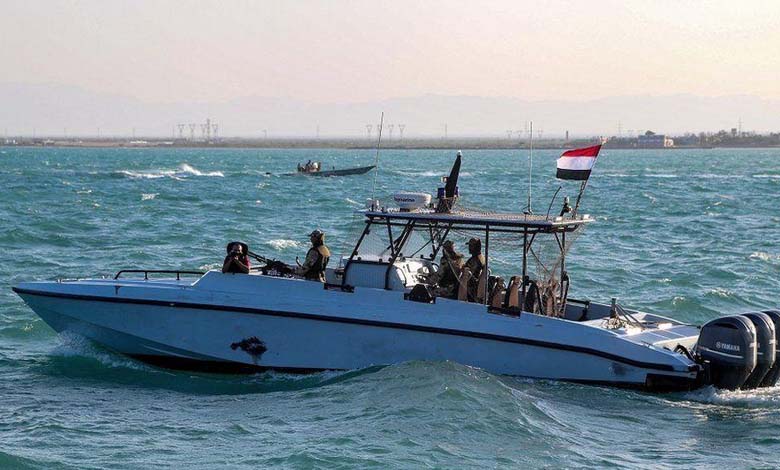More ships are avoiding the Red Sea despite the decision to form an international alliance
The Pentagon confirms that at least eight of the countries that decided to join the naval alliance refuse to publicly disclose their participation due to political sensitivities related to the ongoing Gaza war

German shipping company Hapag-Lloyd and Hong Kong-based Orient Overseas Container Line announced on Thursday that they would avoid the Red Sea, joining other shipping companies that have taken similar actions following attacks by the Houthi rebels on commercial ships. The U.S. Department of Defense (Pentagon) stated that over 20 countries in total have agreed to participate in the new naval alliance to protect maritime navigation, but eight countries have refused to announce their participation.
These attacks have disrupted global trade and led to the formation of a naval task force. Acts of violence have also restricted the passage of ships through the Suez Canal, through which about 12% of global trade flows. The importance of the Suez Canal lies in transporting goods between Asia and Europe. However, global shipping experts have warned that the disruption may have repercussions worldwide unless ships, containers, and other necessary equipment for changing cargo routes in alternative routes and ports are available.
Matthew Burgess, Deputy Head of Global Ocean Services at C.H. Robinson Worldwide, commented, “The situation remains unstable, things may change quickly, and that is why there is a need for emergency plans that include Plan A, B, and C to keep supply chains moving in case of disruptions.”
Hapag-Lloyd stated that it would change the routes of 25 ships by the end of the year to avoid sailing in the Red Sea. Avoiding the Red Sea and the Suez Canal means using significantly longer routes by circumnavigating the African continent.
The Houthi rebels, allied with Iran and controlling most of Yemen’s territory, have been conducting attacks on ships passing through the Bab el Mandeb Strait in the southern Red Sea for weeks, claiming it is in response to Israel’s war in Gaza.
Meanwhile, traders are scrambling to find alternative shipping routes to deliver goods to retail stores, and using the Cape of Good Hope route extends the journey by an additional 10 to 14 days. Orient Overseas Container Line stated in a press release on Thursday, “So far, we have directed our company-operated vessels to change the route or suspend sailing to the Red Sea.” This marks the first time they confirm a temporary suspension of sailing.
Christian Sur, Executive Vice President of Maritime Shipping at Unifeeder Logistics, explained that a crisis in one stage of the supply chain could lead to ship congestion, disrupting arrival and departure schedules at seaports, and consecutive delays in the entire system.
The cost of shipping a container from China to the Mediterranean rose by 44% in December due to disruptions in the Red Sea, according to the company Fretos. Sur mentioned that if the conflict continues or escalates, the so-called “spot” shipping rates not under contract could increase two or three times from current levels.
Global furniture retailer IKEA was among the companies warning of potential shipment delays and product shortages. Finnish elevator company KONE expected some shipments to be delayed by two to three weeks.
While goods transported by containers, such as clothing, toys, and food, are the most at risk, other products are also affected. U.S. soybean exporters, who were already redirecting shipments from the drought-stricken Panama Canal to the Suez Canal, are considering using trains heading to the U.S. West Coast to reach ships directly to China and other Asian markets, avoiding longer alternative routes around South America or Africa.
Analysts warned that some retailers might start facing shortages of certain goods by February, although, after the COVID-19 pandemic, more companies sought supply chain flexibility by purchasing from multiple sources in different regions. Sur stated, “We have become more experienced after going through COVID.”
The Pentagon announced on Thursday that over 20 countries in total have agreed to participate in the new alliance led by the United States to protect maritime trade in the Red Sea from the attacks of the Yemeni Houthi movement. However, the new total number indicates that at least eight of the countries that decided to join those efforts refuse to disclose their participation publicly, signaling political sensitivities amid escalating regional tensions due to the war between Israel and Hamas.
Houthi leader threatened to escalate attacks to include U.S. naval ships, increasing expectations of the conflict widening around the Bab el Mandeb Strait.
A spokesperson for Hapag-Lloyd said that the company’s vessel, Bridge, was attacked near Yemen on December 15th while en route to Singapore, and the company will make further decisions about routes by the end of the year. The spokesperson noted that the company has not yet received detailed information about the naval alliance.
Shipping officials say that the stability of vital waterways will be necessary to ensure a complete resumption of shipping. The aftermath of the disruption of maritime shipping directly impacted Israel. Orient Overseas Container Line announced last Saturday that it would “due to operational issues” stop accepting any shipments to and from Israel until further notice. The CEO of Eilat Port said on Thursday that the port located in southern Israel has experienced an 85% decline in activity since the intensification of Houthi attacks.












